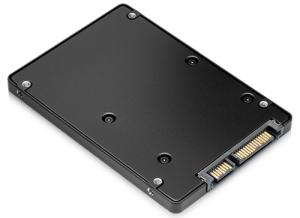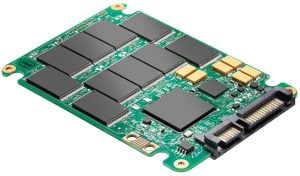To save files, carry out operations, and run programs, you need storage. Hard drives are used in computers and devices to store data. Most websites use disk space on a server to store images, codes, text, databases, and other data. Both SSD and HDD are types of storage devices used to archive data. Specifically used an internal and external storage device for computers and laptops. An SSD, or a solid-state drive, is storage used in computers that allows a device’s operating system to load more quickly. SSD or solid-state drive is more efficient when it comes to performance when compared to HDD or hard-disk drives. In comparison, SSD is similar to a flash drive without the mechanical moving parts making it compact and durable. When compared with their price, SSD is much more expensive than HDD.
SSD Disk Space in Hosting
The speed of SSD allows the user to access their data daily. In web hosting, the storage space stores your public information, images, and details that make up the display of your website. According to Gary McGath (2022) in his article, web users expect a page to load within 3 seconds or less upon clicking a button and click “back” when it takes longer. If the HDD accesses stored data, it takes a few milliseconds to read the storage and adds up depending on the data that need access. So when your website is interactive and the loading time is slow, you must be concerned with the processing speed, and solid-state storage would be a great help to speed up.
Cloud SSD WordPress Hosting
For example, when you create a video hosting site, you will need HHD since video hosting will require a lot of space storage. On the other hand, when your site needs a high performance, such as e-commerce websites. Sales may be affected when the site runs slow, making the customer bored and would rather not wait longer. SSD would increase the page loading of sites and give faster access to files. As a result, SSD cloud hosting will give your website a competitive edge in the intensifying online market. Maximizing your site load time will attract more traffics and search engines due to the ideal site impression. This reliability results in not having your site down along with speed.
 Unlike the fragile old USB hard drives we use to store files, SSD is less vulnerable to shocks. To reach densities, manufacturers create SSD by gridding together chips. With the new technology, SSD stores data in a compact chip consuming less energy and is more durable. The lack of moving parts on the solid-state device eliminates the possibility of the files wearing out, which usually happens with hard drives. The low operating temperature allows a smooth run. The durability of SSDs and HDDs is affected by a variety of factors, such as temperature, humidity, and the effect of metals oxidizing inside the drives.
Unlike the fragile old USB hard drives we use to store files, SSD is less vulnerable to shocks. To reach densities, manufacturers create SSD by gridding together chips. With the new technology, SSD stores data in a compact chip consuming less energy and is more durable. The lack of moving parts on the solid-state device eliminates the possibility of the files wearing out, which usually happens with hard drives. The low operating temperature allows a smooth run. The durability of SSDs and HDDs is affected by a variety of factors, such as temperature, humidity, and the effect of metals oxidizing inside the drives.
Benefits of SSD Disk Space in Hosting
The more great thing about SSD is the reduction in power consumption. Whether it be resting or working, HDD consumes more power than SSD. This feature allows web hosting companies to reduce their overhead expense. Other than that, web hosting companies give importance to their environmental impact. Thus, web hosting companies lessen their carbon footprint and win their green practice by resettling SSD storage usage. The majority of the consumer and clients appreciate using brands that show appreciation for the world’s resources.
 Despite these excellent features, the only downside of SSD hosting is the cost of the drive. Considering that SSD is more expensive than regular drives, this is only a minor drawback despite its good advantages. This disadvantage should not affect you being a website owner and your site. Due to careful resource adjustments, SSD cloud solutions are becoming increasingly affordable. Scalability allows them to keep all costs within a reasonable budget. If you care about your website, you should always use a host that will assign your website full SSD web space.
Despite these excellent features, the only downside of SSD hosting is the cost of the drive. Considering that SSD is more expensive than regular drives, this is only a minor drawback despite its good advantages. This disadvantage should not affect you being a website owner and your site. Due to careful resource adjustments, SSD cloud solutions are becoming increasingly affordable. Scalability allows them to keep all costs within a reasonable budget. If you care about your website, you should always use a host that will assign your website full SSD web space.
Because of the mentioned benefits of increased dependability and faster disk reading, an increasing number of web hosting businesses have switched from HDD to SSD in their data centers. SSD cloud hosting implies that your website will use an entire network of servers rather than a single machine. This means you won’t have any downtime because if something goes wrong, one of the cached copies of your site will simply take over – even if it’s a major server failure. This kind of hosting defends your site from Distributed denial-of-service attacks (DDoS) that overwhelm your server with requests that will eventually crash your system. There is no single point of access to your website files because of their network architecture, and even if one machine fails, there are many others available to take the load. To sum it up, SSD cloud hosting is one of the most secure hosting solutions in the market.
Comments are closed.

One comment
Pingbacks and Tracebacks
[…] to SSD hosting offers several […]